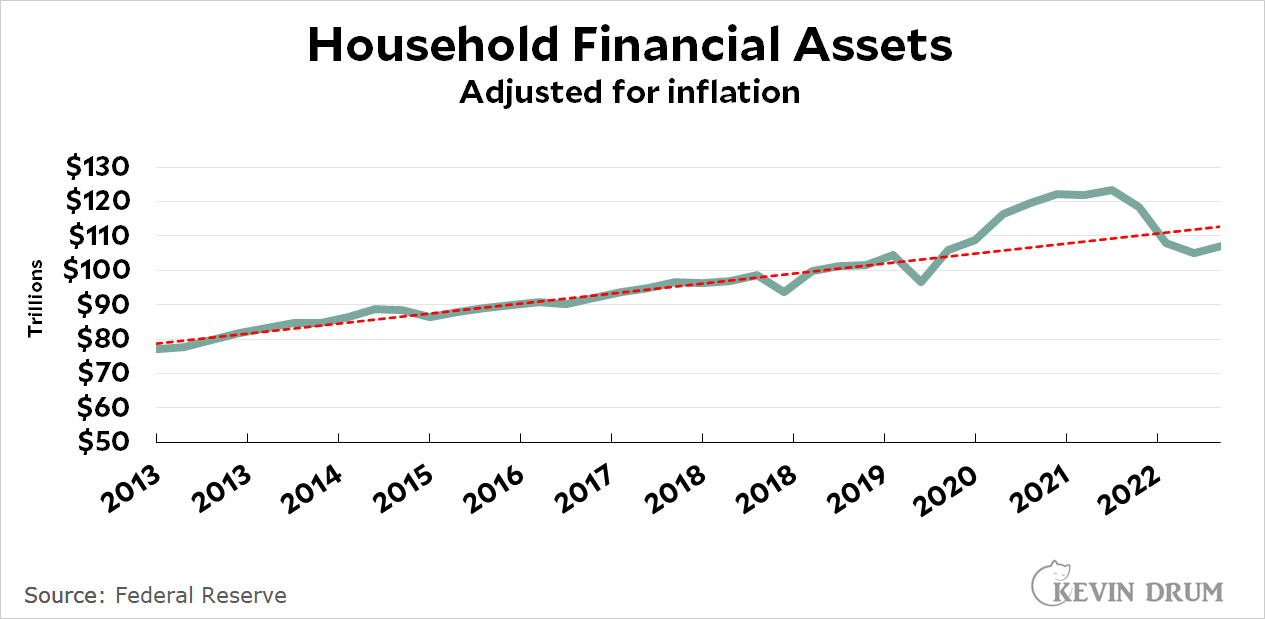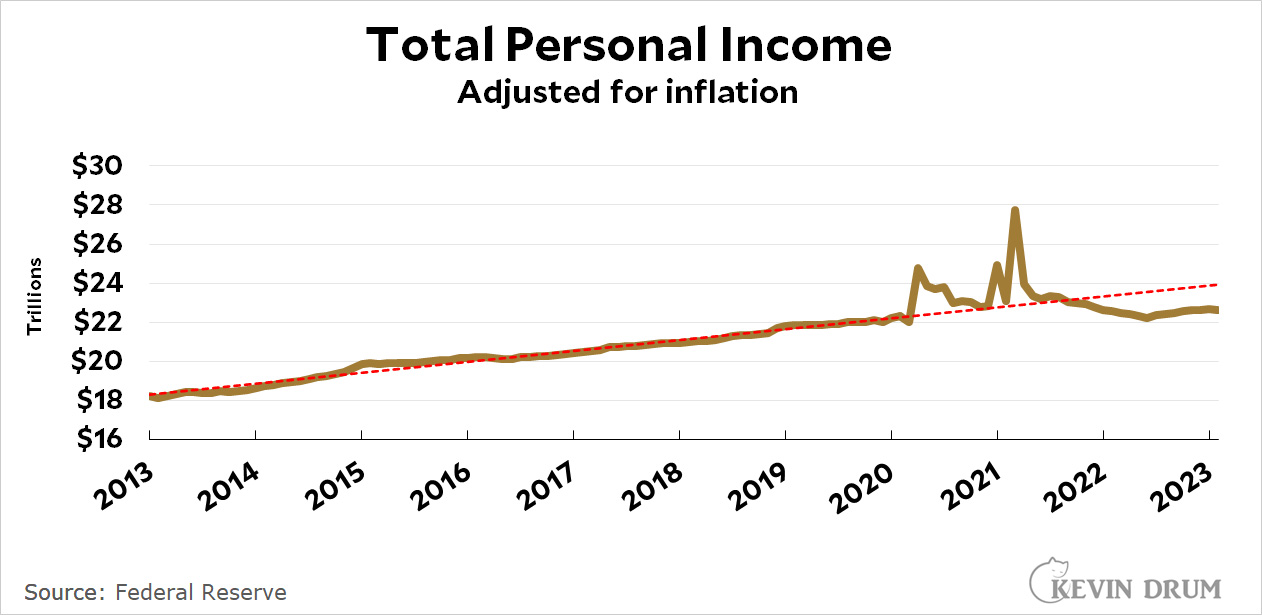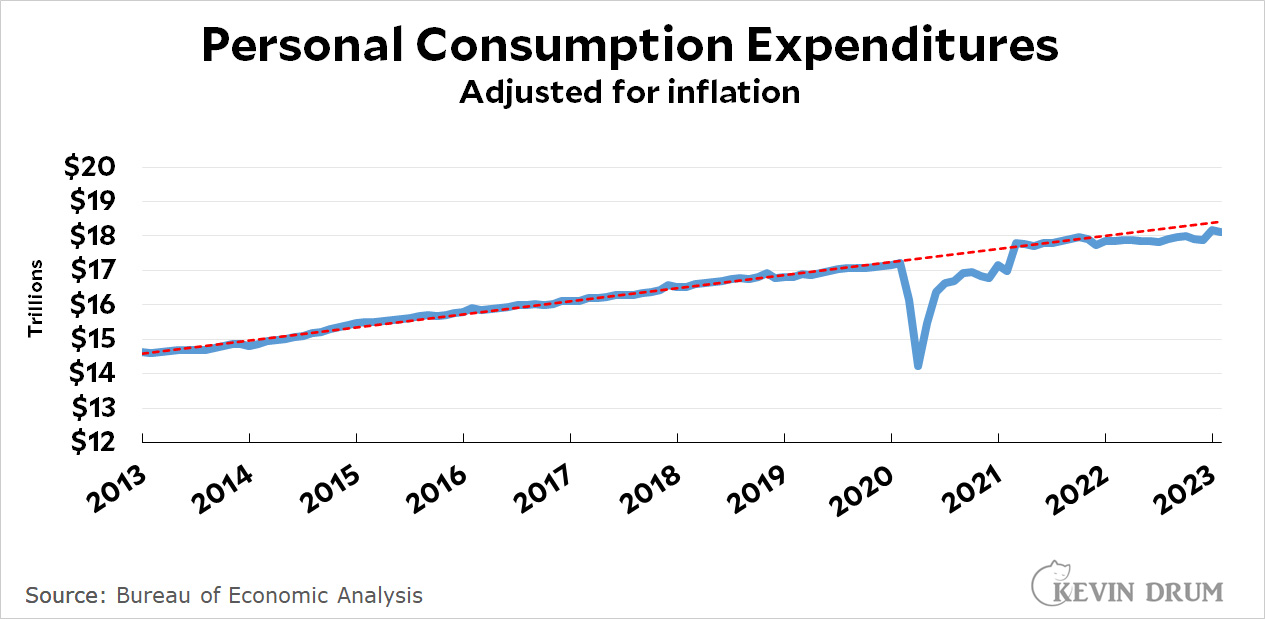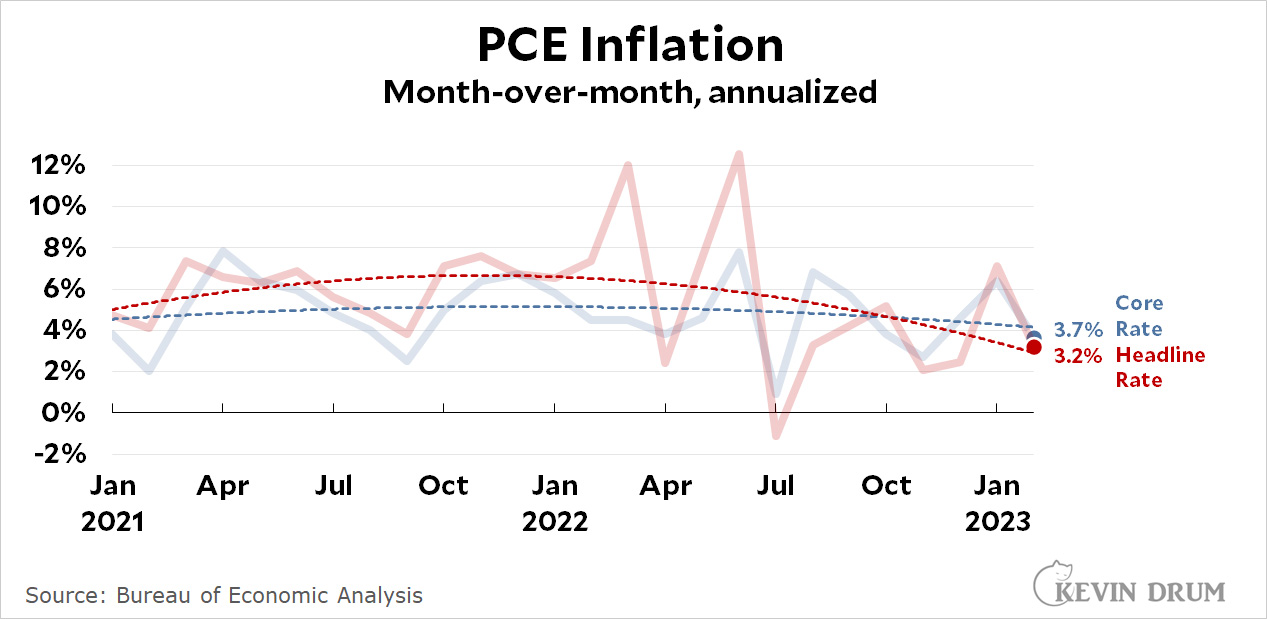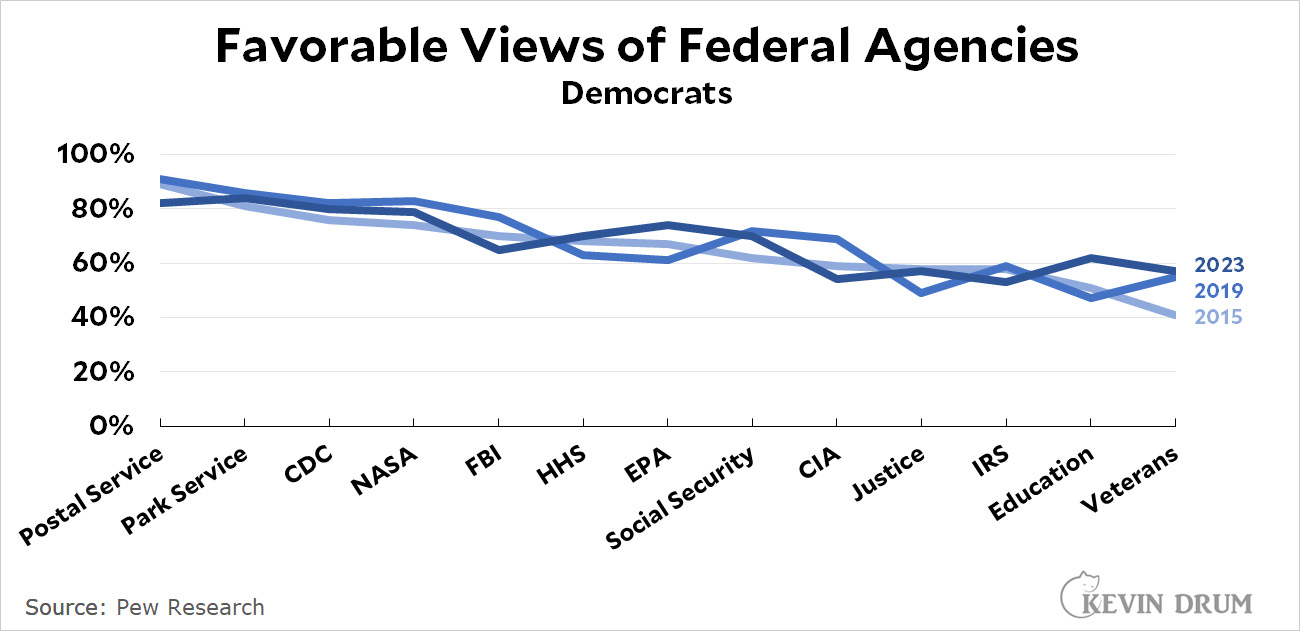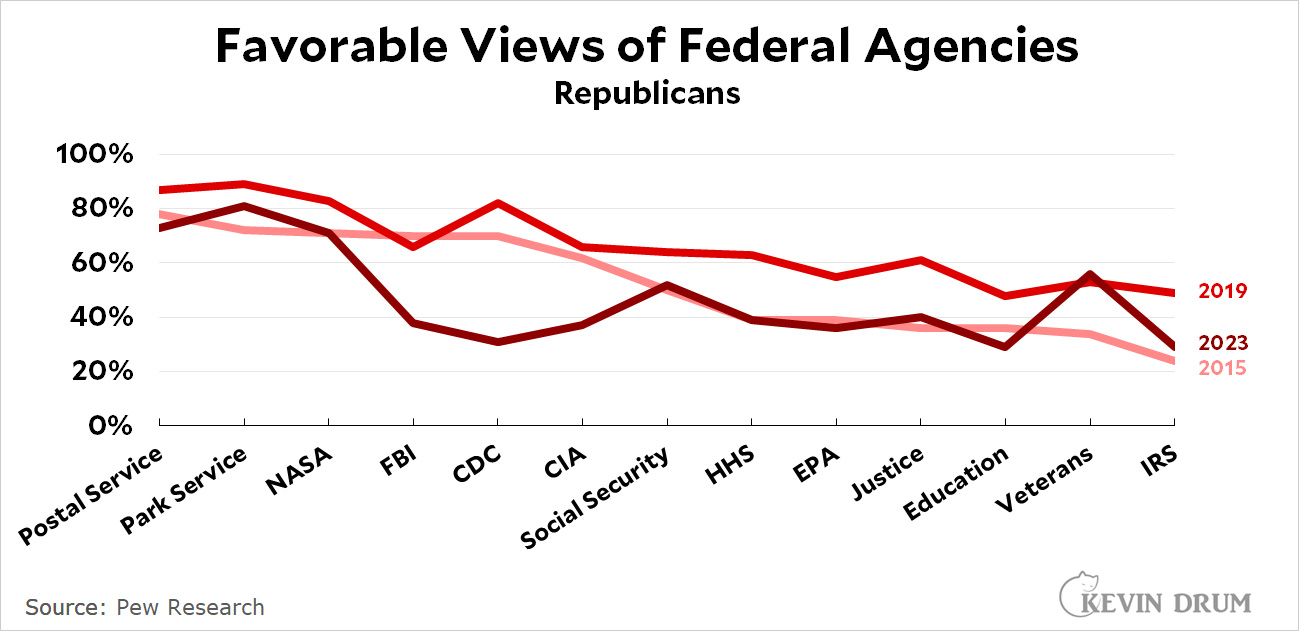Over at National Review today I came across a link to a "massively researched, thoroughly reported, and well-thought-out essay" that is "an early contender for essay of the year."
NR is a nice, mainstream conservative publication, so I clicked the link to find out what mainstream conservatism finds interesting these days. Here is one paragraph:
Something monstrous is taking shape in America. Formally, it exhibits the synergy of state and corporate power in service of a tribal zeal that is the hallmark of fascism. Yet anyone who spends time in America and is not a brainwashed zealot can tell that it is not a fascist country. What is coming into being is a new form of government and social organization that is as different from mid-twentieth century liberal democracy as the early American republic was from the British monarchism that it grew out of and eventually supplanted. A state organized on the principle that it exists to protect the sovereign rights of individuals, is being replaced by a digital leviathan that wields power through opaque algorithms and the manipulation of digital swarms. It resembles the Chinese system of social credit and one-party state control, and yet that, too, misses the distinctively American and providential character of the control system. In the time we lose trying to name it, the thing itself may disappear back into the bureaucratic shadows, covering up any trace of it with automated deletions from the top-secret data centers of Amazon Web Services, “the trusted cloud for government.”
That's from the prologue, which is 2,000 words long. The actual essay itself turns out to be 11,000 words long. It's by Jacob Siegel, an editor at Tablet, and the topic is disinformation, which Siegel calls "the hoax of the century."
I won't pretend that I read all 13,000 words closely, but I did skim my way through the entire thing.¹ Siegel's contention, delivered with the connect-the-dots fervor of a JFK conspiracy theorist, is that the deep state has invented a fake disinformation crisis as a way of justifying the creation of a massive left-wing surveillance apparatus based on government control of social media and designed to censor conservative thought. Siegel relies mostly on stale old hobbyhorses like Hamilton 68, the Twitter files, GEC, CISA, the Steele dossier, and the "Russia hoax," and along the way he namechecks a rogues gallery of conservative bugbears, including George Soros, Alex Berenson, Klaus Schwab ("capo di tutti capi of the global expert class"), Hunter Biden, and "a class of journalists, retired generals, spies, Democratic Party bosses, party apparatchiks, and counterterrorism experts against the remnant of the American people who refused to submit to their authority."
In other words, it's basically made up out of buzzwords and gauze. There's barely a single word that exposes either a massive domestic surveillance operation or any serious government control of social media. And it's not as if the government doesn't know how to set up something like this if it wants to. As you may recall, the NSA really does surveil practically everything that crisscrosses the country, and it requires thousands of people, millions of terabytes of storage, and dozens of massive supercomputers. Siegel can do no more than point to a few haggard little groups of maybe 10 or 15 people each.
Is this essay the "Flight 93 Election" of 2023? Or just a lonely conspiracy theory that happened to get picked up by an NR writer on a bad day? I will be curious to see if it gets any further pickup in right-wing circles.
In any case, it's an interesting look at a particular way of thinking that's been picking up steam over the past year or two: namely that conservatives are widely convinced that social media is involved in a massive plot to censor them despite the fact that conservative accounts are among the most popular on nearly every social media platform. If you wonder how they square these two things, Siegel's essay is a place to start.
¹Because I'm a pro, that's why.

